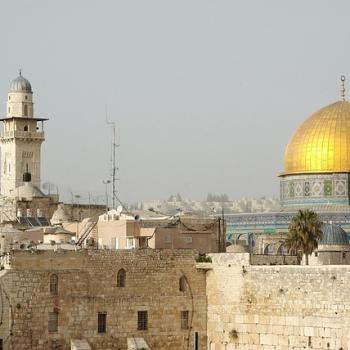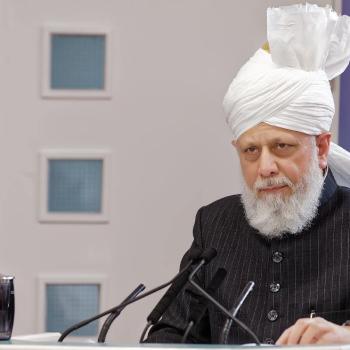
April 9, 2015 marks 150 years that the Civil War ended. Apparently no one told Officer Michael T. Slager.
Watch the video of Slager, a white South Carolina police officer, gun down Walter Scott, an unarmed black father of four, and you’ll realize something most every person of color in America knows: the Civil War may have ended 150 years ago, but a race war rages on in America.
The question thus isn’t what, but why? Why is it that 150 years after the bloodiest war on American soil ended, black men and children are still having their blood spilt at the hands of racist and violent government officials? But it is more than that. Racism exists today in every facet of American life—from racist fraternities, to racist professional team owners and managers, and yes to racist police officers too.
Racism exists and thrives today for one reason and one reason only: failed moral and political leadership—end of story. It took a century after the Civil War ended to pass the Civil Rights Act, and 50 years later we still appear generations away from the death of racism.
Attitude is a reflection of leadership.
Compare the United States before the Civil War to ancient Arabia at the advent of Prophet Muhammad in 610 AD, and you’ll find uncanny similarities. Arabia in 610 was rampant with racism, slavery, and violence against minorities. But while 150 years after the Civil War ended institutionalized racism remains embedded within the fabric of American society, by the time Prophet Muhammad died in 632, racism and slavery were ghosts of an abandoned era.
How was this possible?
I tackled this exact issue in detail in my recent book EXTREMIST. What strategy did Prophet Muhammad implement 1400 years ago—successfully—that our allegedly advanced society cannot seem to get right even today?
First, Islam employed an effective process to end slavery rather than issue an empty declaration alone. Islam submits that while society can pass rules and regulations, it is both unwise and impossible to force the mind to accept what the heart does not. In other words, Islam recognizes that racism, prejudice, and bigotry do not just disappear simply because a law is passed. Such diseases ingrain themselves into society. Racism and prejudice must be extracted thoroughly if a society has a hope of permanently eliminating them as opposed to merely covering them up.
To systemically abolish slavery, Prophet Muhammad first forbade that any free person be enslaved, thus stopping the slave trade from expanding. Next, Prophet Muhammad firmly established that all humanity is equal—one could not accept Islam without embracing this principle.
Thus, as slave owners accepted Islam, they unambiguously recognized that their slaves were their equals. These free Muslims naturally developed affection for their fellow human beings—slave or free. Any time Prophet Muhammad was given the opportunity to free a slave—he would do so immediately and without delay. Indeed, upon his marriage to Khadija, she willingly transferred all her property—and her slaves—to his name. As his first order of business, Prophet Muhammad freed every slave without demanding or hinting at the least compensation. Muslim slave owners followed this compassionate example and freed their slaves of their own accord, thus shrinking the population of those yet in slavery. The Qur’an additionally required Muslim slave owners to free slaves if a slave could purchase freedom. Moreover, if the slave could not purchase his own freedom, the Qur’an obliged the slave owner to help his own slave purchase his freedom. The gravity of this teaching is profound: a slave could be freed upon simple request and nothing else.
Some critics scoff that Prophet Muhammad didn’t immediately free all slaves as Abraham Lincoln did with the Emancipation Proclamation. Such critics are well advised to look at the result of the two strategies. The Islamic approach is paramount because it helped Arab society avoid a massive pitfall from which American society still hasn’t escaped even 150 years after its slavery was abolished. This Islamic teaching did not simply end slavery. It ended slavery while providing former slaves the means to be absorbed into society at a rate both the economy and workforce could manage.
Prophet Muhammad said concerning the treatment of slaves: “Your servants and slaves are your brothers and your stewards: God has placed them under your hands; whoso then has a brother under his hands, let him feed him out of what he feeds himself, and let him clothe him out of what he clothes himself; and compel them not to do work which will overpower them, and if ye do compel them (to any such work), then assist them in doing the same.”
Making a slave eat as you eat and dress as you dress? Help them with their hard labor? Such exemplary treatment does not even exist today in the most civilized of nations and most advanced jobs. Consider: what employee can say that he or she eats as the CEO eats, dresses as the CEO dresses, and lives as the CEO lives? The relationship that Islam prescribes here is not “slave/master” but employee/employer, with the “slaves” receiving better treatment than employees even in many advanced nations today.
Numerous well-known and respected Christian scholars and historians cannot help but admit that Muslims treated slaves with utmost compassion and equality. For example, historian Lerone Bennet Jr. writes: “As a religious ethic, Islam was unusually effective in cutting across racial lines. All Moslems, whatever their color, were brothers in faith. “If a Negro slave is appointed to rule you,” Mohammed said, “hear and obey him, though his head be like a dried grape.” In this climate, a man could be a slave today and a prime minister tomorrow. An extraordinarily large number of Negroes played heroic roles in the rise and spread of Islam…there were…numerous black generals, administrators, and poets…race was not a crucial factor in the Islamic world.”
Indeed, Bennet was commenting on established history. Who can forget Bilal, a former Abyssinian slave whom Prophet Muhammad elevated to the rank of general and referred to him affectionately as “my lord.” Usama bin Zaid and Zaid bin Harr were former slaves that were likewise raised to the status of generals in Muslim armies. Ata bin Abi Rabah, Ibn-e-Sireen, and Nafi’ became renowned imams of ahadith and fiqh (jurisprudence); each rose to these great heights from slavery. Imam Ibn-e-Sireen, another former slave, is regarded to this day as a premier authority on dream interpretation. Likewise, Abdullah bin Mubarak is another brilliant imam of fiqh who was once a slave. Mujahid bin Jubair, Musa bin Akba, Muhammad bin Isaac were prolific scholars and historians who were once slaves and rose to unmatched heights—all because of Islam’s strategy to eliminate slavery through a process of promoting compassion, not as some executive order.
Prophet Muhammad’s method to end slavery was not only practical, but also secular in application, effective, and long lasting. As a result, slavery ended quickly, and racial harmony flourished for millennia to come. Certainly, racism has infected some Muslims today. Islam’s long racially harmonious history records, however, that such racism exists today due to ignoring Prophet Muhammad’s example of love for all humanity. Indeed, Prophet Muhammad’s dying words were, “A black is no better than a white, nor a white better than a black. An Arab is no better than a non-Arab, nor is a non-Arab better than an Arab. You are all equal in the eyes of God except by piety and good works.”
150 years after the Civil War ended, the murder of Walter Scott is but the latest in an increasing list of horrific murders of unarmed black men in America. Prophet Muhammad’s example of love, compassion, and genuine human sympathy is the proven method to ensure that as our next generation matures, they understand the simple truth that Prophet Muhammad emphatically established 1400 years ago: #BlackLivesMatter.
Qasim Rashid is an attorney, best selling author of EXTREMIST, and natoinal spokesperson for the Ahmadiyya Muslim Community USA. Follow him on Twitter @MuslimIQ or Facebook.com/AuthorQasimRashid












